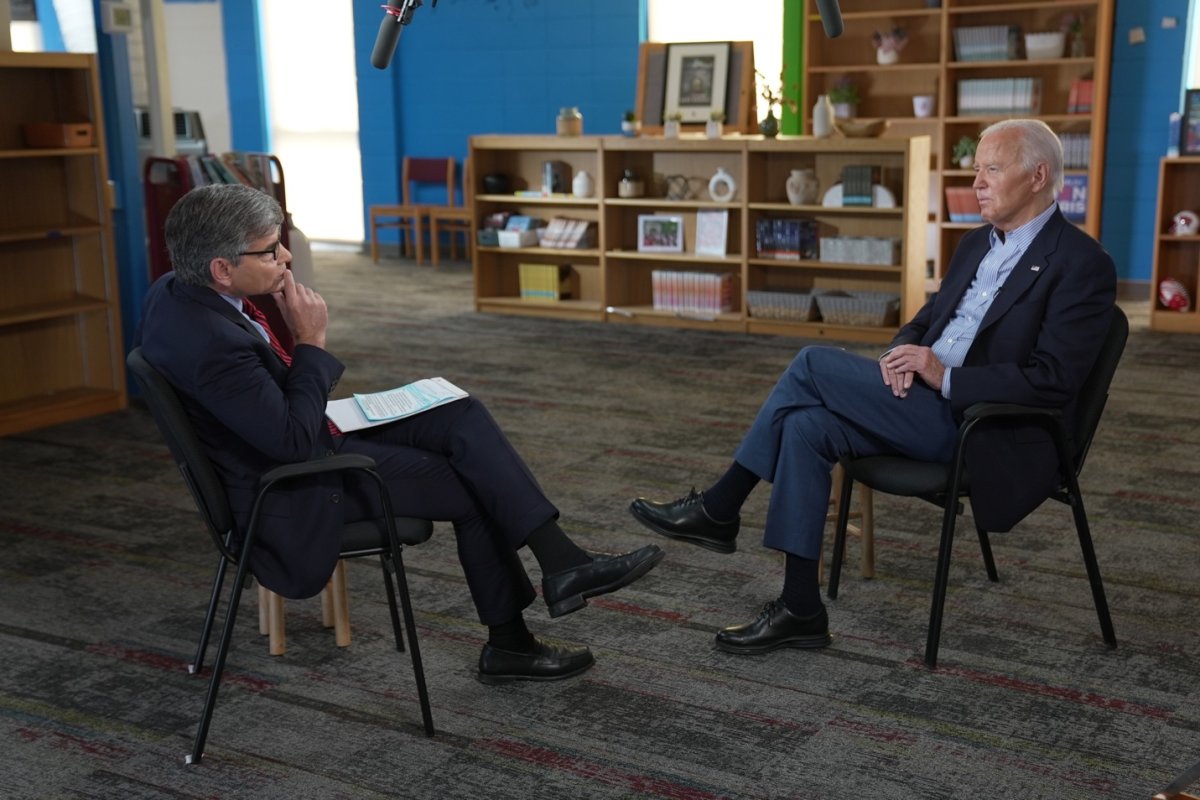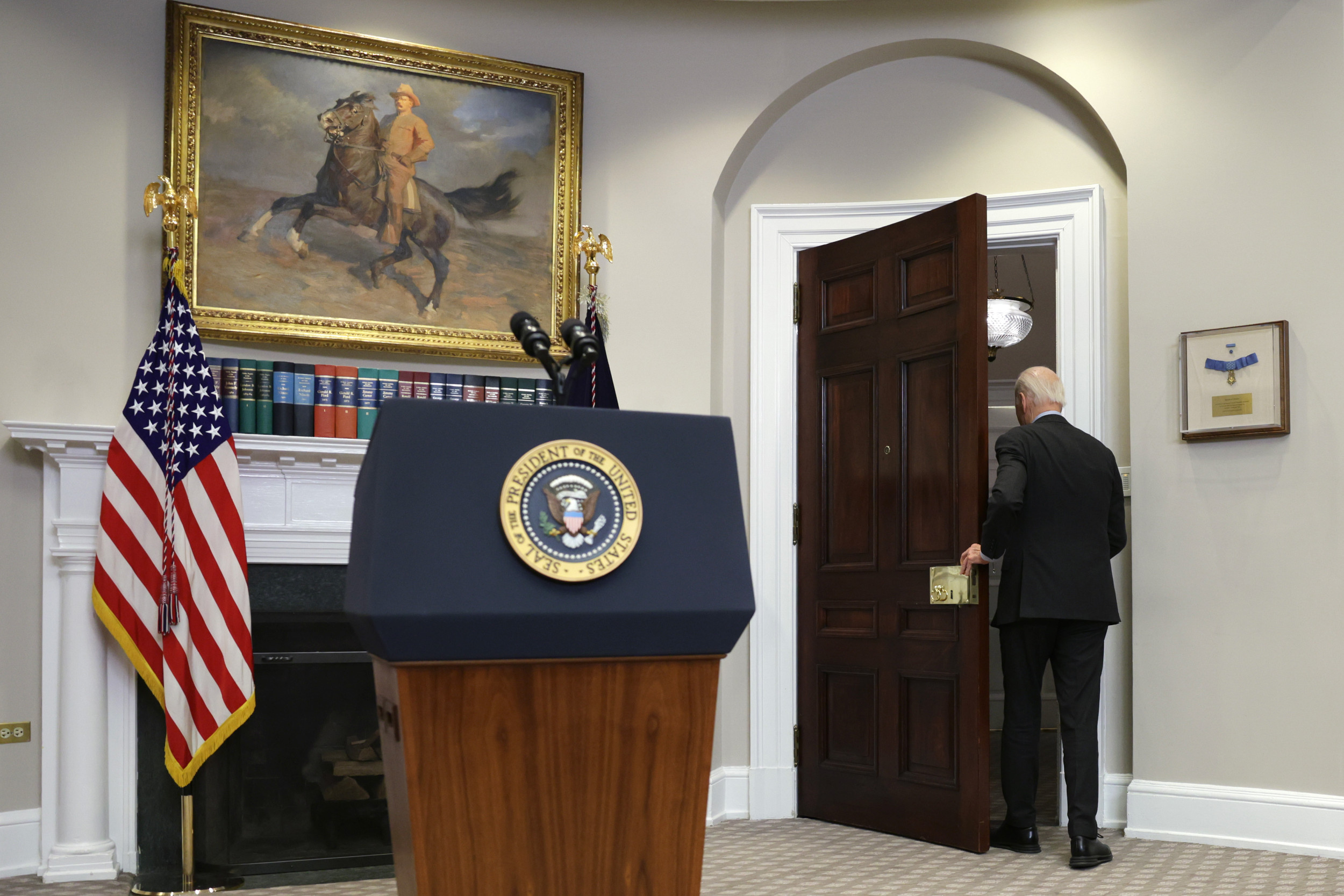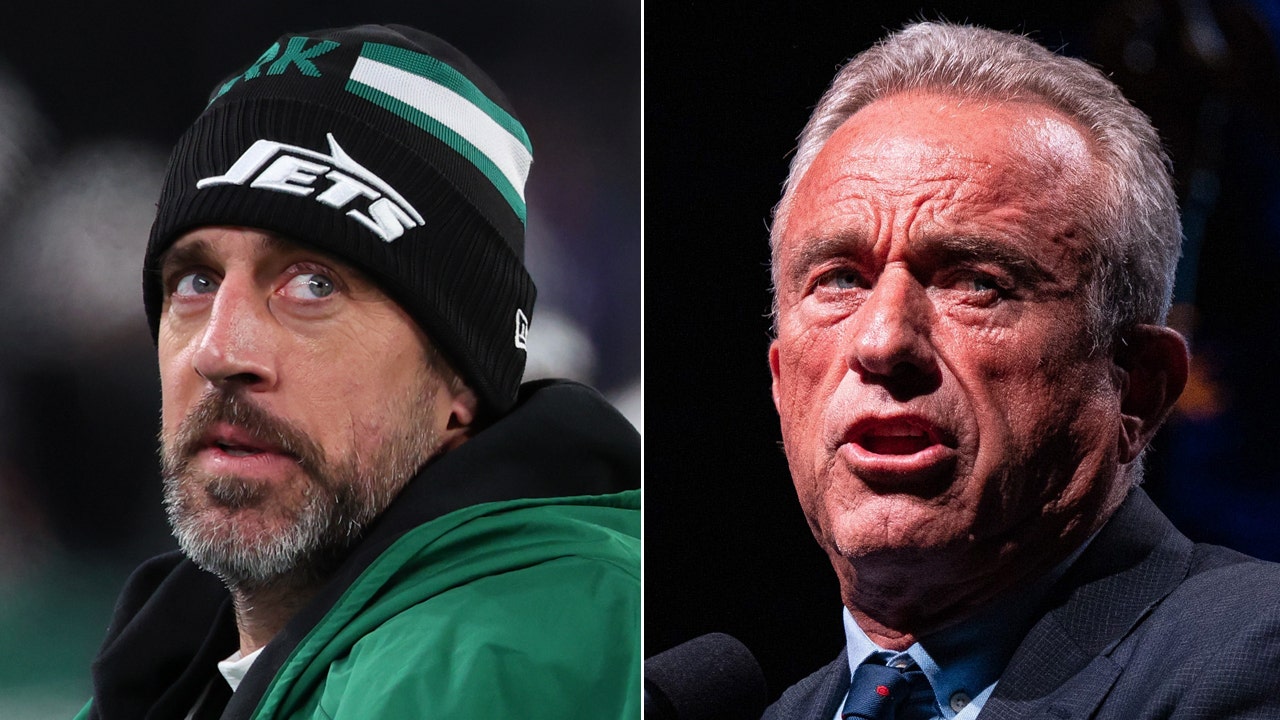President Joe Biden is set to close out his term in office with a final interview on MSNBC’s The Last Word with Lawrence O’Donnell on Thursday night at 10 p.m. ET. The one-on-one will mark the close of a political career spanning half a century that became increasingly insulated as the president, who turned 82 in November, grew older.
The interview is with a friendly host on a friendly cable network that has seen a collapse in its ratings post-election. O’Donnell’s show airs at a late hour and attracts about 1.1 million viewers, making it the second most popular program on MSNBC behind Rachel Maddow — but a far cry from the reach of a broadcast tentpole like NBC’s Nightly News or CBS’ 60 Minutes, to say nothing of the viral TikToks and big-name podcasts that have largely replaced TV news for so many Americans.
O’Donnell, a former Democratic Senate aide, is also one of Biden’s more ardent supporters in the news media, having called his presser on the sidelines of a NATO summit this summer the “most masterful televised presidential press conference about foreign policy” ever delivered.
The decision by the president to deliver his last word on O’Donnell’s Last Word suggests Biden is happy to leave office without one last big tangle with the more combative White House press corp.
Newsweek reached out to the White House for comment but did not immediately receive a response.
Alex Wong/Getty Images
Biden’s aversion to the media has been something of a constant throughout his term, with the exception of the period just after his disastrous debate performance this summer when he did a handful of radio and TV interviews in an attempt to shore up public perception of his cognitive ability.
Before the summer, Biden seemed determined to avoid the public eye, his team opting for controlled appearances over the unpredictable glare of unscripted moments and sit-down interviews. But as the presidential election approached, his retreat became impossible to ignore.
The turning point came in that June debate with Donald Trump, a rematch that had been framed as Biden’s chance to underscore his leadership and contrast him with Trump’s impulsiveness. In the months leading up to the showdown, Biden had noticeably pulled back from the media spotlight, a move that only fueled speculation about his mental acuity.
Instead, the debate served as the beginning of the end. Biden appeared unsteady, his responses erratic, his voice a hoarse whisper. For the first time, even loyal Democrats began to ask uncomfortable questions about whether he was the right man to defeat Trump at the ballot box. What was intended as a strategy to avoid missteps ultimately backfired, paving the way for his decision to step aside in July.

Photo by Justin Sullivan/Getty Images
A Media ‘Cover Up’
Until that moment on the debate stage in Atlanta, questions about Biden’s age and cognitive abilities were met with silence, or outright dismissal, by many in the mainstream media. MSNBC’s Joe Scarborough, host of “Morning Joe,” infamously commented in March 2024: “Biden is far beyond cogent. He is better than he has ever been intellectually, analytically.”
It wasn’t until after the debate that some of the country’s largest media outlets began to ask questions that, many argue, they should have been asking all along. The press’ tone shifted. The New York Times issued a rare editorial urging Biden to reflect on whether he was still the best choice to lead the Democratic Party. Other traditionally supportive outlets like The New Yorker joined the chorus, with editor David Remnick writing about the “honor in recognizing the hard demands of the moment.”
Even Scarborough, one of Biden’s most loyal defenders just three months earlier, turned on the president after the debate, saying “If he were a CEO and turned in a performance like that, would any Fortune 500 corporation in America keep him on?”
Veteran political journalist Mark Halperin described the media “cover up” of Biden’s health “the worst scandal in American journalism history.”
“The press turned on him and acted like they had not just propped him up for seven years,” Halperin said during an interview with conservative commentator Tucker Carlson on his podcast just before the election. “They never acknowledged their participation as co-conspirators in a seven-year-long cover up, and then the same people get to cover the new candidate.”

AFP/Getty Images
In an attempt to control the debate fallout, Biden and his aides arranged a high-rpofile one-on-one interview with George Stephanopoulos of ABC, which did little to queel the public skepticism.
“Especially in the aftermath of that first debate with Trump, the media started questioning Biden’s ability to run again,” media analyst Brad Adgate told Newsweek.
A Presidency of Fewer Words
Joe Biden is departing Washington as the president with the fewest press conferences and media interviews among the last seven presidents, according to an analysis by presidential scholar Martha Joynt Kumar.
While Biden’s administration leaned into digital communication and informal Q&A exchanges, traditional press engagement were few and far between. Based on Kumar’s data, up until to June 2024 Biden participated in 588 impromptu interactions with reporters during his term—second only to Trump—but held just 36 formal press conferences and 125 interviews. By comparison, Trump conducted 327 interviews, and Obama had 479 at similar points in their presidencies.
“These informal interactions often lacked the depth of accountability that formal interviews or press conferences provide,” Adgate, the media critic said.
The ‘Biden Bubble’
The president’s limited media presence wasn’t just a strategy to shield him from social media scrutiny, it became a narrative unto itself. Though his team frequently cited his lifelong stutter as an explanation for his often poor performances in unscripted settings, the optics had become hard to ignore.
After switching to more stable sneakers following a fall during a military graduation ceremony in June 2023, some commentators speculated that his team was quietly acknowledging his physical decline. However, questions about his mental sharpness remained largely ignored — even as polling showed Americans had serious questions about his physical and cognitive abilities.

MANDEL NGAN/AFP via Getty Images
A PBS NewsHour/NPR/Marist poll released in April 2023 showed that only 47 percent of Democrats supported Biden running for re-election, with a significant decline in support among younger Democrats.
Even as these questions about his mental fitness were avoided—what Jill Abramson, former executive editor of The New York Times, attributed to reporters’ political concerns about “not being accused of helping Donald Trump” — the mainstream media began raising concerns about the president’s accessibility. In March 2024, the Times issued a rare public statement criticizing the administration for its limited engagement with journalists.
“For anyone who understands the role of the free press in a democracy, it should be troubling that President Biden has so actively and effectively avoided questions” the statement read.
Deputy White House Press Secretary Andrew Bates responded to the Times criticism, stating: “President Biden is delivering his message to the American people through an aggressive, modern, all-encompassing communications and digital strategy.” He highlighted interviews Biden gave to The New Yorker, ProPublica, and CNN’s Fareed Zakaria, as well as multiple appearances on cable news, with MSNBC leading the count.
A Shifting Media Landscape
Biden’s presidency coincided with seismic shifts in how Americans consume news, as traditional media outlets were faced with declining trust and dwindling audiences.
A recent Gallup poll revealed that nearly 70 percent of Americans have little to no confidence in the press, making it the least trusted institution in the country — behind even Congress. Meanwhile, podcasters and independent creators saw their fortunes soar during the Biden years, with figures like Joe Rogan drawing more listeners than the combined evening news broadcasts of ABC, NBC and CBS.
Trump was among the first to recognize — and capitalize — on this new reality, bypassing legacy outlets to connect with his base directly through social media platforms now shaped by tech titans embracing a new ethos of “free speech absolutism.” Biden, by contrast, stuck to a more traditional playbook—one that often felt out of step with the digital age.
“If Biden could revisit his administration, I’m sure he might reconsider how he handled the media,” Adgate said. “Having more press conferences or engaging more with journalists—like previous presidents—could have made a difference. But with the fast-paced news cycle, especially over the last decade, I’m not sure how much press conferences still matter.”
A Farewell on His Terms

Associated Press
As the president prepares to leave Washington, he does so in the understated style that defined much of his presidency. Biden’s conversation with O’Donnell is expected to focus on his legacy while steering clear of the controversies that dogged him in 2024.
Meanwhile, MSNBC is among the outlets still adjusting to the return of Trump. On the same day it announced O’Donnell had landed Biden’s final interview, the cable network said that Rachel Maddow would return to hosting her show five nights a week—a clear signal that the liberal wing of the mainstream media is preparing to ramp up coverage of a president who thrives on constant visibility.












